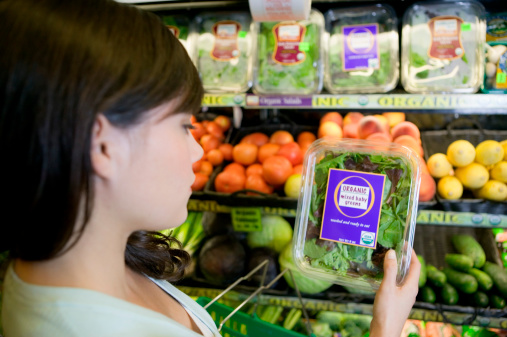Organic food is a rapidly growing industry, and with Amazon's acquisition of Whole Foods, the cost of buying organic is less of an excuse.
No matter your reasons for going organic, our 9NEWS Nutrition expert Dr. Rachel is here to talk about the science of going Organic.
What constitutes are organic food? Organic is defined by food or ingredients grown without the use of pesticides, synthetic fertilizers, sewage sludge, genetically modified organisms, or ionizing radiation.
Everyone is fixated on the cost of organic food, so I want to bring to attention the strange times we are living in where we have to pay extra to get less chemicals and poison. Back in the day, organic food was food.
What are the negative side effects of non-organic food? Pesticides and heavy metals.
Pesticide residues are three to four times higher in conventional crops compared to organic.
Studies have also suggested that pesticide residues—at levels commonly found in the urine of kids in the U.S.—may contribute to ADHD prevalence. They’ve also been linked to reduced sperm quality in men.
Roundup, a commonly used herbicide has been classified by the World Health Organization to be a "probable human carcinogen" in 2015.
Levels of the toxic heavy metal cadmium are nearly twice as high for conventionally grown foods.
What are the benefits of eating organic? Organic food has more nutrients.
Studies have shown that organic crops contain an average of 17 percent more antioxidants than conventionally grown crops. Antioxidants fight disease and aging, and we have to wonder if widespread consumption of conventional or non-organic food has contributed to chronic disease in America.
Organic products for meat and milk can have about 50 percent more omega-3 fatty acids, which are good for heart health, brain function, and reducing body inflammation.
Omega 3 is sorely lacking in the standard American diet, so you want to fill up on food high in Omega 3.
EWG's Dirty Dozen
- Strawberries
- Spinach
- Nectarines
- Apples
- Peaches
- Pears
- Cherries
- Grapes
- Celery
- Tomatoes
- Sweet Bell Peppers
- Potatoes


